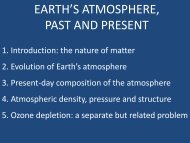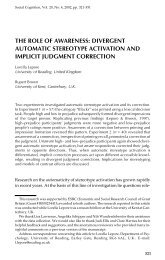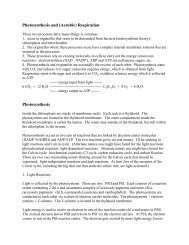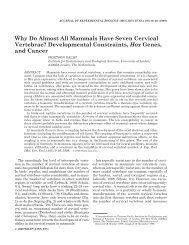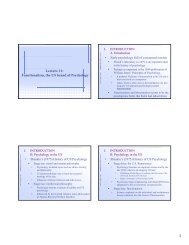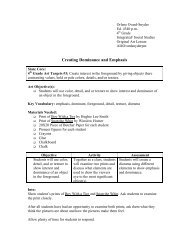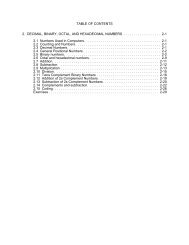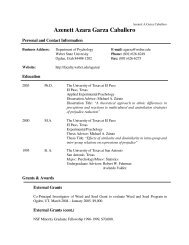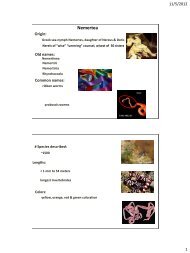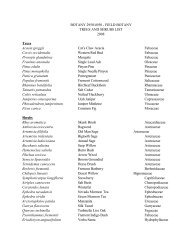Lecture 18: Rationalism - Weber State University
Lecture 18: Rationalism - Weber State University
Lecture 18: Rationalism - Weber State University
Create successful ePaper yourself
Turn your PDF publications into a flip-book with our unique Google optimized e-Paper software.
II. THE CONTINENTAL RATIONALISTS<br />
H. Johann Friedrich Herbart<br />
Apperceptive Mass<br />
Compatible ideas that are in<br />
consciousness to which we are<br />
attending at given moment.<br />
Ideas outside apperceptive mass<br />
(incompatible ideas) are repressed by<br />
the powers of the ideas in the mass.<br />
Limen<br />
<br />
The threshold between conscious<br />
and unconscious<br />
Goal was to mathematically express<br />
the relationships among the<br />
apperceptive mass, the limen, and the<br />
conflict among ideas.<br />
II.<br />
<br />
THE CONTINENTAL RATIONALISTS<br />
H. Johann Friedrich Herbart<br />
Effective Teaching:<br />
Review material already learned<br />
Prepare students for new<br />
material by giving overview of<br />
upcoming material<br />
Present new material<br />
Relate new material to what has<br />
already been learned<br />
Show applications of new<br />
material<br />
Give an overview of next<br />
material to be learned.<br />
II. THE CONTINENTAL RATIONALISTS<br />
I. Georg Wilhelm Friedrich Hegel<br />
G.W.F. Hegel (1770 –<strong>18</strong>31)<br />
German philosopher, and one of<br />
the creators of German idealism<br />
He developed a concept of<br />
mind or spirit that manifested<br />
itself in a set of contradictions<br />
and oppositions that it<br />
ultimately integrated and<br />
united.<br />
The Absolute<br />
<br />
<br />
Universe is interrelated unity<br />
True knowledge is attained by<br />
relating isolated instances to the<br />
“whole.”<br />
II.<br />
<br />
THE CONTINENTAL RATIONALISTS<br />
I. Georg Wilhelm Friedrich Hegel<br />
Our understanding progresses<br />
toward the absolute by the<br />
dialectic process,<br />
First have a thesis (a point of<br />
view) and an antithesis<br />
(opposite point of view),<br />
Then have a synthesis (a<br />
compromise between the thesis<br />
and the antithesis), which is a<br />
new point of view.<br />
This new point of view now<br />
becomes the thesis for the next<br />
dialectic process.<br />
6



